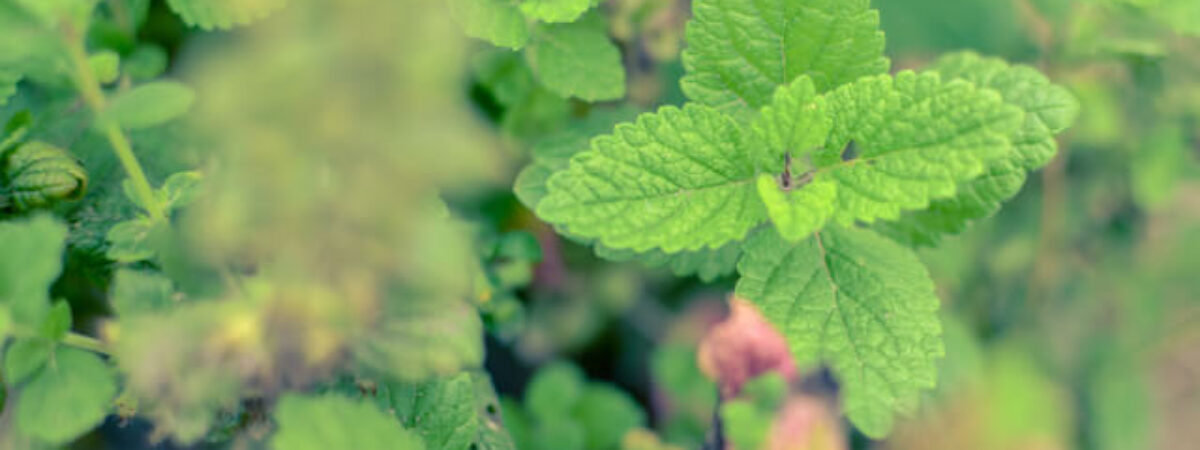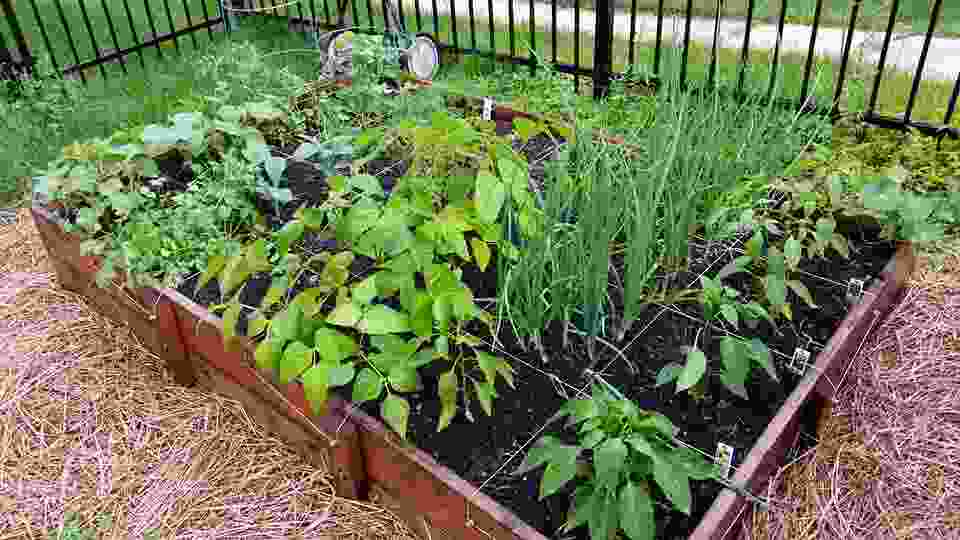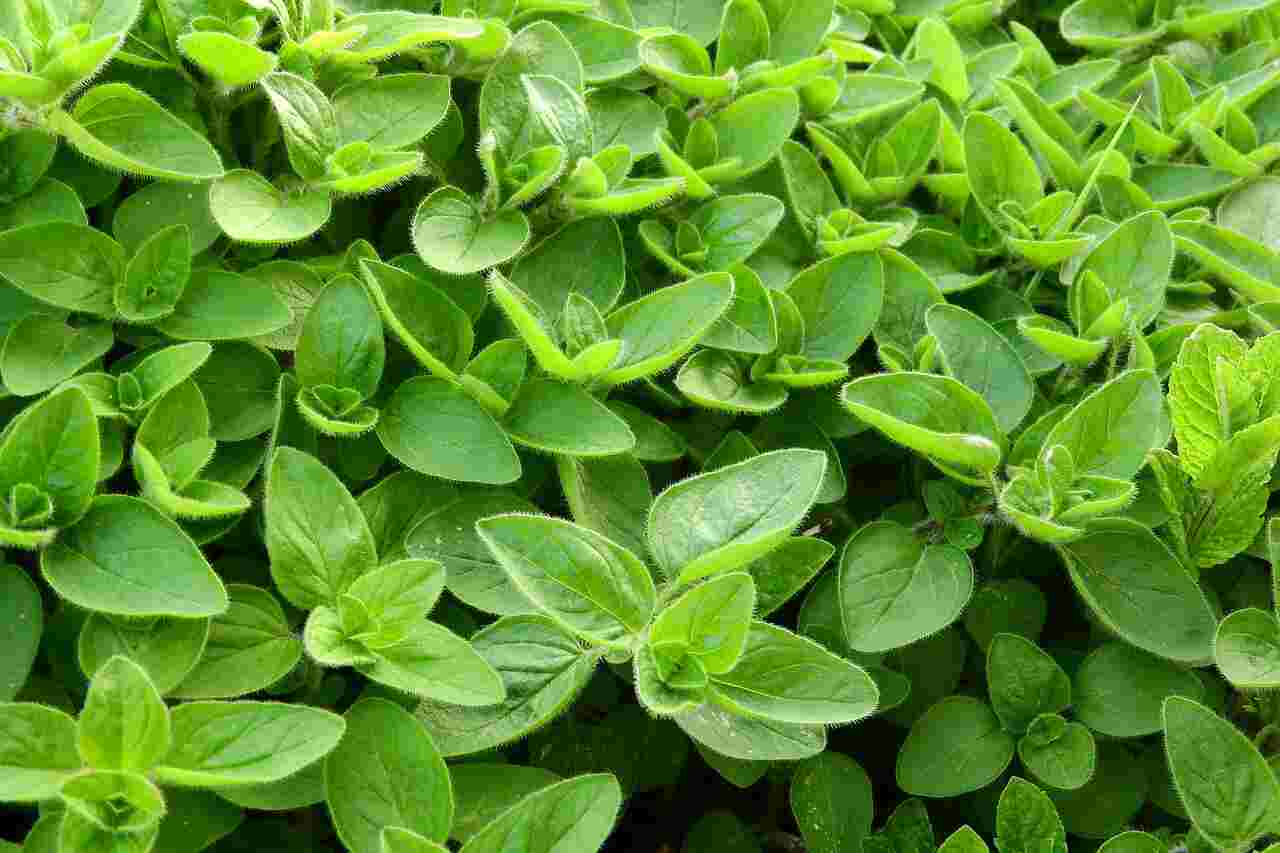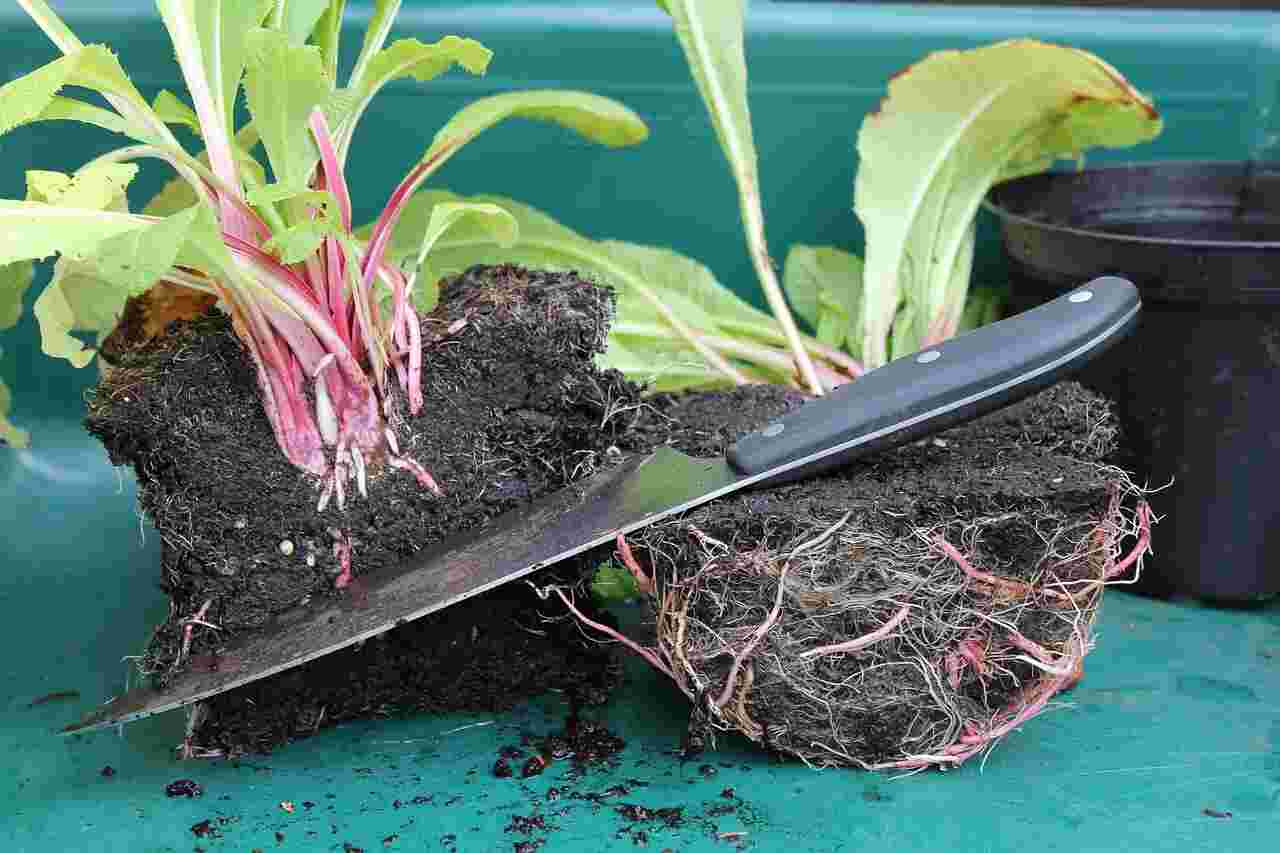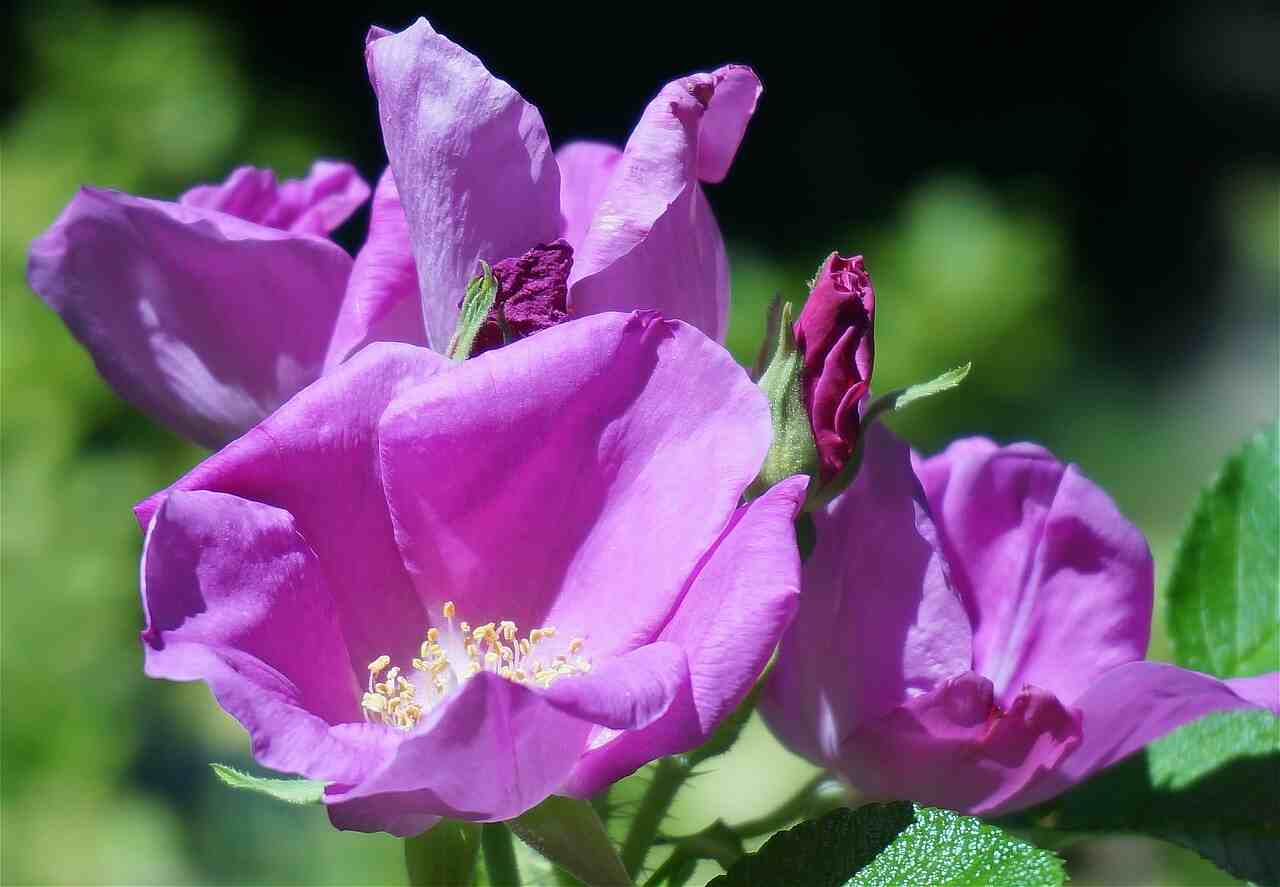Mint is scientifically known as Mentha spp. that belongs to the Lamiaceae family. These are perennial herbs and are most popular in the world due to their refreshing aromatic and cool nature.
The leaves have such versatile uses right from using it in tea, curries, salads, and many more. Use of it is not only limited to food items but also in various other products like toothpaste, beauty creams, chewing gums, etc.
Presence of mint will add freshness to every product where it has been used. Mint is native to North America, Africa and Australia.
They grow vigorously and quickly wherever you plant them, either in a container or on the ground. It is always best to plant them in a container for easy maintenance.
The leaves have such versatile uses right from using it in tea, curries, salads, and many more. Use of it is not only limited to food items but also in various other products like toothpaste, beauty creams, chewing gums, etc. Click To TweetHowever growing, harvesting and storing the leaves plays an important role in retaining the freshness of the leaves. There are some 30 varieties of mint available. Among them peppermint and spearmint are majorly grown.
Here is a complete guide on how to grow and harvest mint and enjoy its freshness from your own garden.
Growing and Caring Guide
Light
These plants grow in partial shade and even under sun if regularly watered. You should avoid direct Sunlight for these plants.
Soil
There is no specific soil type for mint plants to grow, they can grow in any soil. However loamy and well drained soil with slightly acidic to neutral pH works great for the mint to grow healthy.
Water
These plants prefer a little bit of moist soil. If you see some wilting symptoms in your mint plants then water them immediately. Watering the mint plants in the morning hours is the best time as the plant can retain maximum moisture.
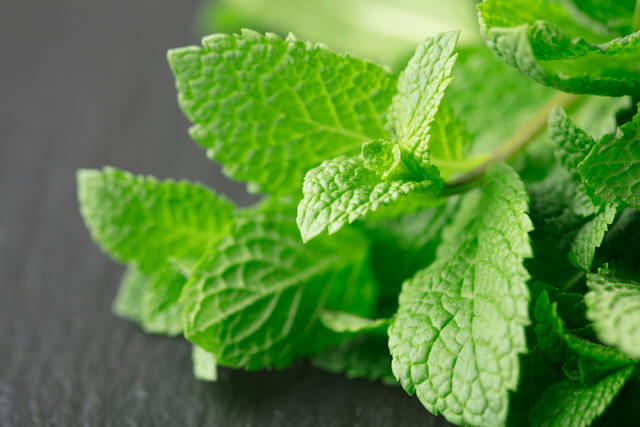
Temperature and Humidity
These plants are widely adaptable to various temperatures. Although they cannot tolerate frost. So there are two main varieties of mint widely grown.
Spearmint scientifically known as Mentha spicata that can tolerate warm temperatures and hence are grown in USDA hardiness zone 11.
Peppermint scientifically known as Mentha piperita that can tolerate cold temperatures and hence are grown in USDA hardiness zone 3.
The leaves cannot grow well in low humidity, so misting helps to maintain the moisture level of the plants when there is not adequate humidity in the atmosphere such as during winter.
Fertilizer
Fertilizer is not a major concern for these plants to grow. However if your soil is nutrient deficient then you need to fertilize them occasionally.
They grow best in nutrient rich compost soil. However an all purpose fertilizer for container plants is good to use. Follow the packet instructions while applying.
Varieties
Mentha piperita citrata
Leaves with a fruity flavor such as orange mint are among the tangiest. Zones 4 to 11 are the best growing conditions.
Mentha suaveolens
Known for its combination of apple and mint flavor, these variety grows in zones 5 to 11.
Mentha suaveolens variegata:
An apple mint offshoot, pineapple variety is a variegated plant that grows in zones 6 to 11.
Mentha x. piperita:
Growing in USDA zones 3 to 11, peppermint has a sweet, minty taste.
Mentha × piperita f. citrata ‘Chocolate’:
Peppermint’s cousin, chocolate variety has leaves with chocolate-minty aromas and tastes.
Mentha spicata:
As an attractive landscape ground cover, spearmint grows from zones 5 through 9 and is excellent for flavoring teas and salads.
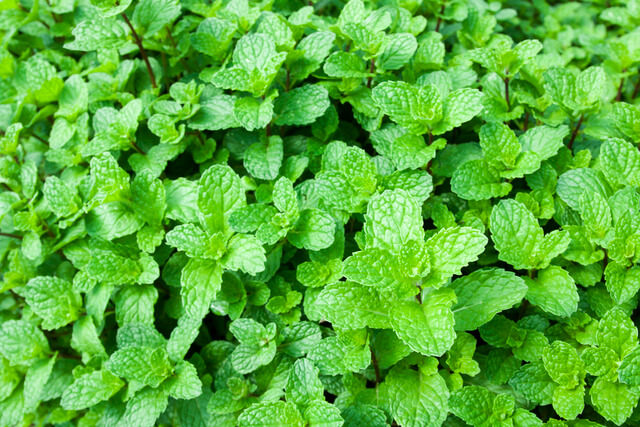
Harvesting
When to harvest ?
The leaves are usually harvested during their growing season and the right time is before the appearance of flowers. When the plants reach 4 inch height then you can pick the leaves.
To get the fresh leaves you can directly pick the leaves from the plant. The leaves grow continuously around 3- 4 times during their growing season. Soil must be kept moist during the growing period.
To get the fresh leaves you can directly pick the leaves from the plant. The leaves grow continuously around 3- 4 times during their growing season. Soil must be kept moist during the growing period. Click To TweetIt should be harvested during the morning hours as the essential oils present in the leaves have more potential during this time. You can get fresh flavors of mint leaves.
Regularly plucking of leaves is best as it will enhance the plants to produce leaves continuously. Hence gardeners prefer to harvest them regularly.
If the flower has come, then harvested leaves will be slightly bitter in taste, so it is better to harvest them before flowers come.
How to Harvest ?
Harvesting quantity depends upon your usage. If you want to have some mint tea then you can pluck a few leaves directly from the plant and brew them with tea.
If you want to have more leaves at a time then you might need a scissor to cut the leaves along with the stem. Then pluck the leaves from the stem and tie the ends of the stem.
If you want the intense flavor of the leaves then pluck the smaller ones as they have more flavor as compared to the larger ones. This will also increase the growth of the plant.
Regular pruning of mint plants helps them to produce more fresh and bushy green leaves. Do not over harvest the leaves.
Always use sharp shears to cut the stem rather than breaking the stem with your hand as it might get infected.
Storing the leaves
Always store the leaves under a cold temperature such as in the fridge. Cover the leaves in a little moist paper and keep inside a plastic bag. This way it can be stored for 8 days.
Drying of leaves
If you want to use leaves for a longer period, then the best way to store them is by drying the leaves. Though you cannot get the same fresh flavor, still it can add taste to your dishes.
In order to dry the leaves you need to follow some steps.
First wash the stems and leaves in cold water. Then divide them into bunches and hang them upside down in a ventilated space.
Wrap the leaves in a dark paper bag and leave it to dry completely. That will take around 1- 2 weeks. You will see that the leaves can crumble easily when dried completely.
Now you can separate the leaves from the stem and store it in a glass jar. Do not forget to open the jar everyday so that you can keep the moisture in check. Otherwise it is best to use a moisture absorbing packet inside the jar.
Conclusion
So now, as you have read so far about the growing and harvesting of the plant, I hope you will not buy mint leaves any more from grocery stores.
It’s time to have your own mint plant and enjoy its flavor and freshness throughout the year. Brew some leaves in your morning tea and get the most benefit of it. I am sure you will love the cooling effect.
You may also like to read
How to Grow Cardamom? – Everything From Propagation to Harvest and Storage
How to Plant, Grow And Care for Cuban Oregano – A Complete Guide

